This interview was originally conducted and published by Melissa De Witte on behalf of the Stanford News Service.
September 2, 1945, is recognized in many American history books as the day World War II formally ended in Asia. But according to Stanford sociologist Gi-Wook Shin, the conflict was never fully resolved in the region, leading to strains in diplomatic relations today.
On the 75th anniversary of this historic milestone, Shin discusses the legacy of World War II in the Asia-Pacific, specifically the failure among nations to fully address past wrongdoings and reach a mutual understanding of the conflict.
As a result, there is a “mismatch” in how Koreans, Chinese, Japanese and also Americans memorialize the war: China celebrates its victory against Japan while Korea commemorates its liberation from Japanese oppression. Meanwhile, Japan honors the victims of the atomic bombings in Hiroshima and Nagasaki – an atrocity many Americans still feel uncomfortable talking about today, Shin points out.
Here, Shin discusses how these diverging perspectives of World War II have led to misgivings today and how, some 75 years later, relations can still be improved in the region.
Shin is a professor of sociology in the School of Humanities and Sciences, the director of the Walter H. Shorenstein Asia-Pacific Research Center, the William J. Perry Professor of Contemporary Korea, director of the Korea Program and a senior fellow at the Freeman Spogli Institute for International Studies. He has led a decade-long study on historical memory in wartime period in Asia called 'Divided Memories and Reconciliation.'
[Subscribe to our newsletters to get the latest updates from our scholars.]
As the world remembers 75 years of the war ending in Asia, what legacies from this period persist today?
War has not really ended in Asia. Even before war settlements were signed, another war broke out on the Korean peninsula and technically never ended. Furthermore, “history wars” that began in the 1980s have intensified in recent years, as Japan and its neighbors continue to fight over the unfortunate past and dispute over territories. Despite increased economic, cultural, and educational exchanges and interactions, war legacies persist to strain regional relations.
Is there anything in this history that you think has been largely forgotten, overlooked or misunderstood?
While U.S. Army Gen. Douglas MacArthur formally accepted Japan’s surrender to allied forces aboard the USS Missouri in Tokyo Bay some 75 years ago, legacies from the war have persisted, straining regional relations to this very day, according to Shin. (Image credit: United States Navy/Wikimedia Commons)
America celebrates World War II victory in Europe (Victory in Europe Day) but remains relatively quiet on its victory in the Asia-Pacific war. In contrast to the moral clarity and nobility of purpose associated with the war in Europe and the defeat of Nazi Germany, the path to war with Japan and its conclusion is far less clear and many Americans still feel uncomfortable talking about the use of atomic weapons – even if it was militarily necessary but morally questionable. Also, it was during the war that about 120,000 people in the U.S. of Japanese ancestry (62 percent being U.S. citizens) were incarcerated in concentration camps.
Compared to Europe, U.S.-led post-war settlements in Asia such as the Tokyo War Crimes Tribunal and San Francisco Peace Treaty were insufficient in addressing atrocities committed by Japan during wartime and the colonial period, sowing the seeds of current disputes and tensions between Japan and its neighbors. The Tokyo tribunal focused on Japanese actions that had most directly affected Western allies (the attack on Pearl Harbor and the mistreatment of Allied prisoners of war) and thus failed to address the massive suffering of the Chinese and the Koreans. The 1951 Peace Treaty expunged Japan’s obligations to pay reparations for its wartime acts but neither the Republic of Korea nor the People’s Republic of China was party to the treaty.
You have written extensively about the repeated failure among Koreans, Chinese and Japanese to produce a shared, historical view of World War II. Can you briefly describe what are these conflicting, historical memories?
For Koreans and Chinese, Japanese atrocities such as the Nanjing massacre, sexual slavery and forced labor are key events that shape their historical memories. For Japanese, on the other hand, actions related to the U.S. such as the Japanese attack on the Pearl Harbor and American bombings (fire and atomic) on Japanese cities are most important to the formation of their memories of war, which led to a widely held view that they were also victims of American aggression and that post-war settlements were “victor’s justice.” These divergent memories are reflected in the ways that they commemorate the end of the war. China celebrates its victory against Japan in the war, while Korea commemorates its liberation from Japanese oppression. Japan holds its annual ceremony to honor victims of atomic bombings.
According to your scholarship, what explains these divergent perspectives?
The divergence comes from the different weight each country places on historical events in their respective memory formation. Japanese actions figure prominently for Chinese and Korean, but China and Korea are not as significant to Japanese war memories as much as the U.S. is. This mismatch creates perception gaps and misgivings, hindering historical reconciliation.
How has this tension affected relations in the region? Do you think, some 75 years later, these tensions persist today?
Yes, they are very much alive. Look at the current Japanese-South Korean relations. They are two leading economies with liberal democracies in Asia and also key U.S. allies. They are important trade partners and are facing the same demographic crisis. They share strategic interests in the face of a rising China and North Korean aggression. Nonetheless, the resurfacing of the unresolved historical issues has continued to strain the bilateral relationship. For example, the relationship deteriorated since late 2018 when the South Korea supreme court ruled that Japanese companies should compensate Koreans who were conscripted as forced laborers during the war. In response to the ruling, the Japanese government removed Korea from a list of favored trade partners and the Korean government followed suit. These governmental actions are now fueled by populist nationalism (the rightist in Japan and the leftist in Korea), which has proven to be very effective in the politics of both nations.
Can the U.S. play any role to help achieve historical reconciliation?
The U.S. can take a more proactive role in encouraging Japan to work toward achieving regional reconciliation. As noted above, Japan does not seem to be taking its Asian neighbors as seriously as it should be when it comes to historical matters, but is rather predominantly focused on reconciling with the U.S. For example, Japan had been calling for the U.S. president to visit the sites of atomic bombings as a way of “removing a historical thorn” in the relationship and President Obama did make a historic visit to Hiroshima in 2016. Japanese Prime Minister Shinzo Abe followed suit soon after by visiting Pearl Harbor to pay respects to the victims of the 1941 attack. But the reconciliation efforts stopped there and did not expand to other victim countries of the war.
When you teach this history of World War II, what do you remind students about this period? How might the past shape students’ understanding of Northeast Asia or the U.S. in the present day?
To avoid repeating the unfortunate past (colonialism and war), I ask, what and how we can learn from history? For example, was the war with Japan necessary, or was it the result of a series of accidents and miscalculations or lack of political leadership? How does the war help us to understand the current tensions between the U.S. and China? What can we learn from the experience of the Japanese internment during the war? Even though President Reagan made an official apology of the internment in 1988, why do we still see similar racialist politics in American society? Addressing these questions requires a critical reflection of the history.
<< The original interview is available via Stanford News >>







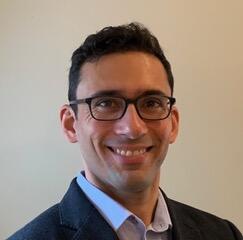

 Takeo Hoshi (University of Tokyo), is Professor of Economics at the University of Tokyo. His research area includes corporate finance, banking, monetary policy and the Japanese economy. Hoshi is also Co-Chairman of the Academic Board of the Center for Industrial Development and Environmental Governance (Tsinghua University). His past positions include Henri and Tomoye Takahashi Senior Fellow at the Freeman Spogli Institute for International Studies at Stanford University and Pacific Economic Cooperation Professor in International Economic Relations at University of California, San Diego. He received the 2015 Japanese Bankers Academic Research Promotion Foundation Award, the 2011 Reischauer International Education Award of Japan Society of San Diego and Tijuana, the 2006 Enjoji Jiro Memorial Prize of Nihon Keizai Shimbun, and the 2005 Japan Economic Association-Nakahara Prize. His book Corporate Financing and Governance in Japan: The Road to the Future (MIT Press, 2001) co-authored with Anil Kashyap received the Nikkei Award for the Best Economics Books. He co-authored The Japanese Economy (MIT Press, 2020) with Takatoshi Ito. His book on the political economy of the Abe administration co-edited with Phillip Lipscy is published from Cambridge University Press in 2021. Other publications include “Will the U.S. and Europe Avoid a Lost Decade? Lessons from Japan’s Post Crisis Experience” (Joint with Anil K Kashyap), IMF Economic Review, 2015; and “Zombie Lending and Depressed Restructuring in Japan” (Joint with Ricardo Caballero and Anil Kashyap), American Economic Review, December 2008. Hoshi received his B.A. from the University of Tokyo in 1983, and a Ph.D. in Economics from the Massachusetts Institute of Technology in 1988.
Takeo Hoshi (University of Tokyo), is Professor of Economics at the University of Tokyo. His research area includes corporate finance, banking, monetary policy and the Japanese economy. Hoshi is also Co-Chairman of the Academic Board of the Center for Industrial Development and Environmental Governance (Tsinghua University). His past positions include Henri and Tomoye Takahashi Senior Fellow at the Freeman Spogli Institute for International Studies at Stanford University and Pacific Economic Cooperation Professor in International Economic Relations at University of California, San Diego. He received the 2015 Japanese Bankers Academic Research Promotion Foundation Award, the 2011 Reischauer International Education Award of Japan Society of San Diego and Tijuana, the 2006 Enjoji Jiro Memorial Prize of Nihon Keizai Shimbun, and the 2005 Japan Economic Association-Nakahara Prize. His book Corporate Financing and Governance in Japan: The Road to the Future (MIT Press, 2001) co-authored with Anil Kashyap received the Nikkei Award for the Best Economics Books. He co-authored The Japanese Economy (MIT Press, 2020) with Takatoshi Ito. His book on the political economy of the Abe administration co-edited with Phillip Lipscy is published from Cambridge University Press in 2021. Other publications include “Will the U.S. and Europe Avoid a Lost Decade? Lessons from Japan’s Post Crisis Experience” (Joint with Anil K Kashyap), IMF Economic Review, 2015; and “Zombie Lending and Depressed Restructuring in Japan” (Joint with Ricardo Caballero and Anil Kashyap), American Economic Review, December 2008. Hoshi received his B.A. from the University of Tokyo in 1983, and a Ph.D. in Economics from the Massachusetts Institute of Technology in 1988. 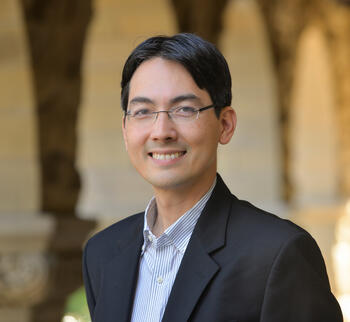
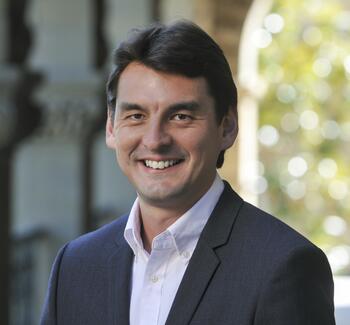

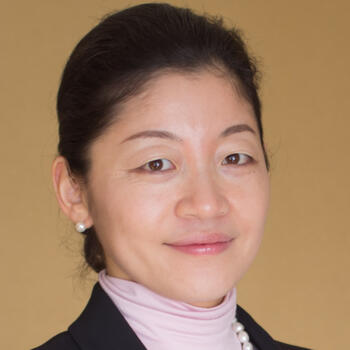
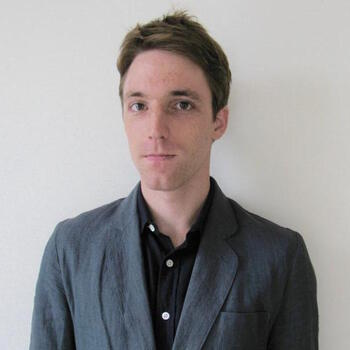
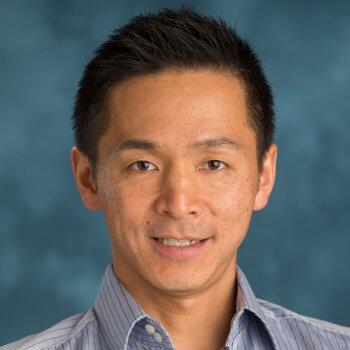




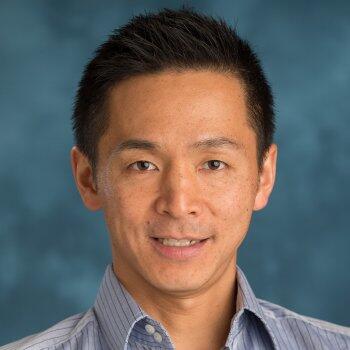






 Arthur Bienenstock is co-chair, with Peter Michelson, of the American Academy of Arts and Sciences’ Committee on International Scientific Partnerships. He has also been a member of the National Science Board, the governing body of the National Science Foundation, since 2012. From November 1997 to January 2001, he was Associate Director for Science of the White House Office of Science and Technology Policy. At Stanford, he is Special Assistant to the President for Federal Research Policy, Associate Director of the Wallenberg Research Link and a professor emeritus of Photon Science, having joined the faculty in 1967. He was Vice Provost and Dean of Research and Graduate Policy during the period September 2003 to November 2006, Director of the Stanford Synchrotron Radiation Lightsource from 1978 to 1977 and Vice Provost for Faculty Affairs from 1972 to 1977.
Arthur Bienenstock is co-chair, with Peter Michelson, of the American Academy of Arts and Sciences’ Committee on International Scientific Partnerships. He has also been a member of the National Science Board, the governing body of the National Science Foundation, since 2012. From November 1997 to January 2001, he was Associate Director for Science of the White House Office of Science and Technology Policy. At Stanford, he is Special Assistant to the President for Federal Research Policy, Associate Director of the Wallenberg Research Link and a professor emeritus of Photon Science, having joined the faculty in 1967. He was Vice Provost and Dean of Research and Graduate Policy during the period September 2003 to November 2006, Director of the Stanford Synchrotron Radiation Lightsource from 1978 to 1977 and Vice Provost for Faculty Affairs from 1972 to 1977. 

 Tim Stearns holds the Frank Lee and Carol Hall Professorship in the Department of Biology at Stanford University and is Senior Associate Vice Provost of Research. He also holds appointments in the Department of Genetics, is a member of the Stanford Cancer Institute and Bio-X, is a Faculty Fellow in Chem-H, and is an affiliated faculty member of the Center for International Security and Cooperation (CISAC). He is a member of JASON, a national organization that advises the government on matters of science, technology and national security. He has also been an advisor to the National Academies of Science and the President's Council of Advisors on Science and Technology (PCAST). Dr. Stearns received a B.S. from Cornell University, a Ph.D. from MIT, and did his postdoctoral fellowship at the University of California, San Francisco. His research concerns the mechanism and regulation of cell division, the organization of signaling pathways within cells, and cell biology of fungal pathogens. Stearns was named an HHMI Professor in 2002 for his work in science education, and has taught international workshops in South Africa, Chile, Ghana, and Tanzania. He is the chair of the NCSD Study Section at the NIH and has served on the editorial boards of several journals.
Tim Stearns holds the Frank Lee and Carol Hall Professorship in the Department of Biology at Stanford University and is Senior Associate Vice Provost of Research. He also holds appointments in the Department of Genetics, is a member of the Stanford Cancer Institute and Bio-X, is a Faculty Fellow in Chem-H, and is an affiliated faculty member of the Center for International Security and Cooperation (CISAC). He is a member of JASON, a national organization that advises the government on matters of science, technology and national security. He has also been an advisor to the National Academies of Science and the President's Council of Advisors on Science and Technology (PCAST). Dr. Stearns received a B.S. from Cornell University, a Ph.D. from MIT, and did his postdoctoral fellowship at the University of California, San Francisco. His research concerns the mechanism and regulation of cell division, the organization of signaling pathways within cells, and cell biology of fungal pathogens. Stearns was named an HHMI Professor in 2002 for his work in science education, and has taught international workshops in South Africa, Chile, Ghana, and Tanzania. He is the chair of the NCSD Study Section at the NIH and has served on the editorial boards of several journals.
